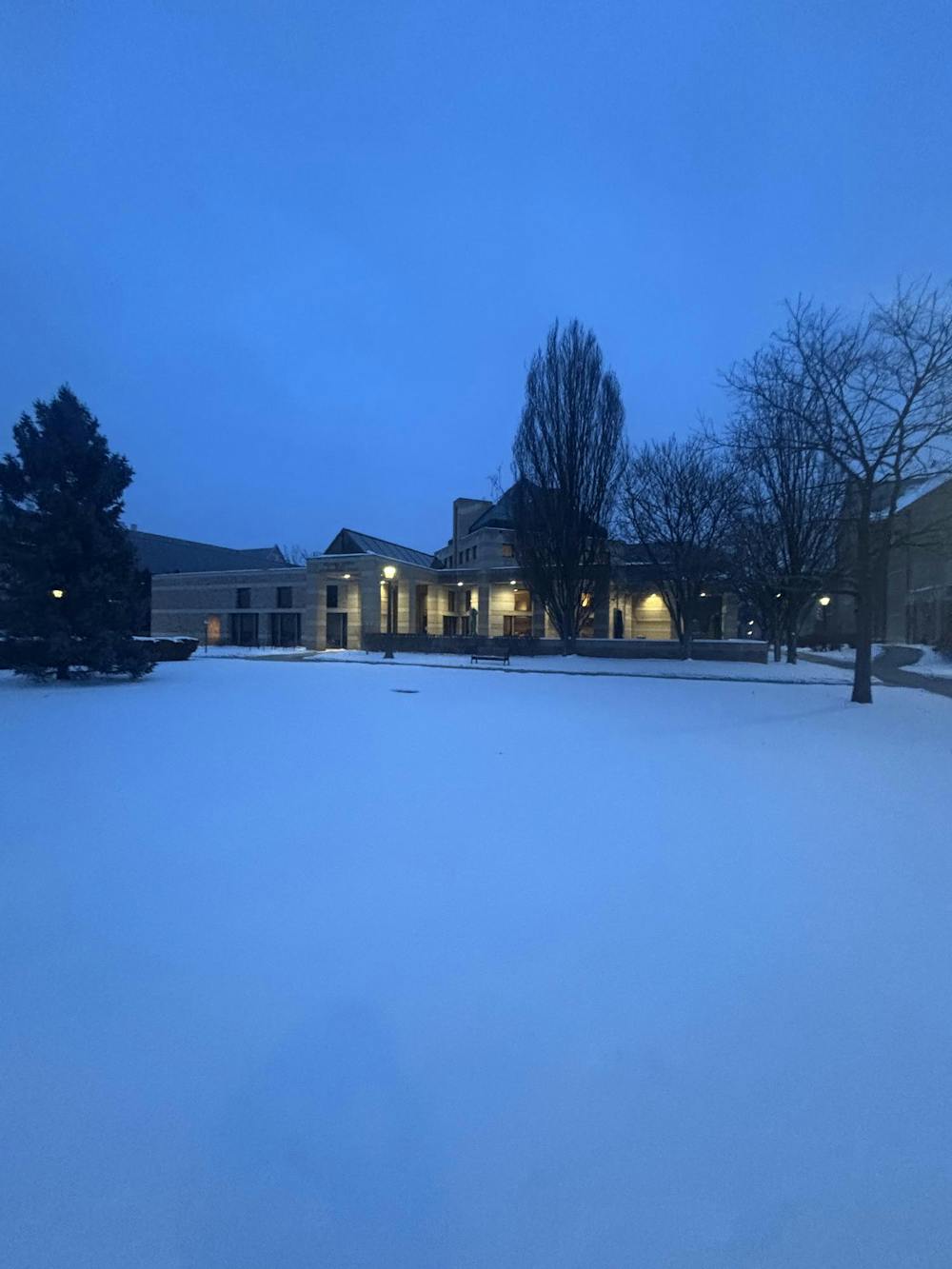The Kellogg Institute for International Studies hosted University of Oklahoma professor Rachel Schwartz on Tuesday to discuss international anti-corruption efforts. Schwartz, author of the award-winning 2023 book “Undermining the State from Within: The Institutional Legacies of Civil War in Central America,” began the lecture by expressing the importance of corruption as a crisis not only at a domestic level but also at an international one.
“So corruption, as I’m sure many of you know, has long been considered a dire challenge when it comes to development at the domestic level,” Schwartz said. “But I think in recent decades, we’ve seen a growing conversation, growing recognition, that corruption is not just a development problem, it’s also a pressing international security challenge as well.”
Schwartz’s lecture focused on the role of International Anti-Corruption Commissions (IACCs), in which international experts collaborate with domestic governments to investigate and prosecute corruption, raise anti-corruption awareness and propose institutional reforms. Though supportive of the roles IACCs play in combating corruption, Schwartz was careful to note their limitations.
“There’s a catch here, which is that these kinds of shared sovereignty arrangements … entail significant domestic government authority over what these kinds of initiatives actually look like,” she said. “Domestic political actors must authorize the introduction of entities like IACCs … and so this leads to the potential that domestic governments can limit the scope of an IACC’s work.”
In her lecture, Schwartz explained the varying degrees of autonomy domestic governments are willing to lend to these organizations and how this influences their effectiveness. In answering these questions, Schwartz examined the role of IACCs in several Central American nations. From these case studies, she found the conditions pressuring countries into establishing IACCs heavily influence their autonomy and, thus, effectiveness.
“The first distinction that I draw is whether IACC pressure is primarily derived from civil society mobilization or whether it occurs through the initiative of domestic leaders who are guided by more self-interested and particularistic motives,” Schwartz said. “In some cases, IACC pressures may come from outside governments as well as domestic civil society. I argue that this process, this kind of pressure, is more likely to induce [highly] autonomous commissions.”
Schwartz specifically called attention to Guatemala’s IACC, the International Commission Against Impunity in Guatemala, which was highly successful in pursuing anti-corruption measures relative to neighboring states. Schwartz attributed its 12 years of success to a strong Guatemalan civil society that pressured the government into creating the commission. She then contrasted Guatemala’s relative success with El Salvador’s, whose IACC was a product of its leader’s self-interest.
“This is an IACC that is not really created to fight corruption at all. It is created to target the government’s political opponents, and as a result, it is vested with very little autonomy,” Schwartz explained. “So the case of El Salvador is very much one of an IACC that’s really only intended to go after corruption in ways authorized by the executive, which, of course, requires its complete political subordination and lack of opportunity.”
Schwartz’s second distinction was transnational factors. She noted that corrupt Central American leaders learned from the circumstances of their neighbors and incorporated that knowledge for their own purposes when inviting IACCs into their countries.
“There are clear ways in which … domestic leaders learned from prior IACC experiences of their neighbors,” Schwartz pointed out. “For instance, in response to the significant advances in the UN-sponsored IACC in Guatemala, what do Honduran and Salvadoran leaders do? They instead engage in this sort of forum shopping, and go with the [Organization of American States].”
Two of Schwartz’s key takeaways from this empirical evidence were that IACCs don’t develop in a vacuum and that the circumstances motivating leaders to create them are vital to their success. Despite the shortcomings, Schwartz remained optimistic about the potential role IACCs could play, hoping that her findings would promote increased longevity to future commissions and noting that even in countries like Honduras and El Salvador with weaker commissions, IACCs still found success.
“A really interesting piece of all of this is that despite the constraints, in all three cases but especially the two more constrained commissions … they exceed those,” Schwartz said. “They overcame those constraints and made much more progress than they were ever meant to.”










